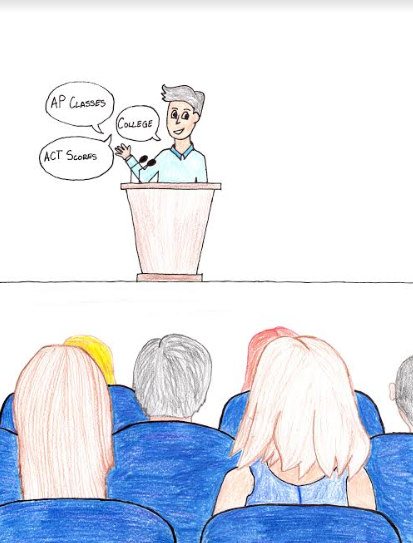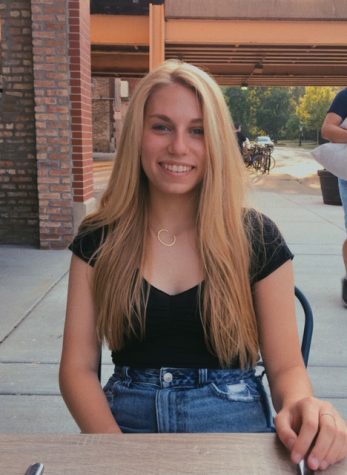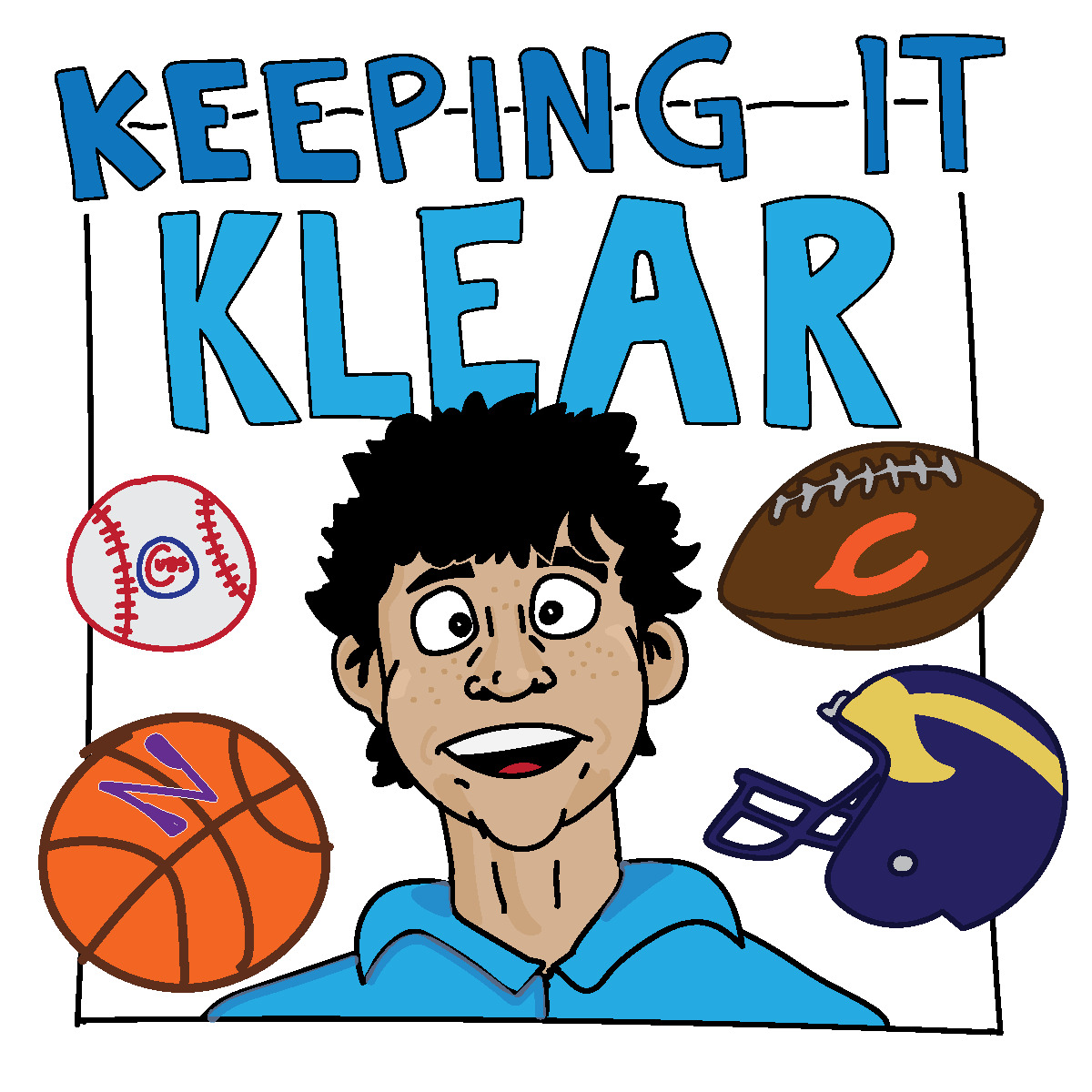Identity influences one’s definition of success
April 26, 2019
With almost 4,000 students at ETHS, there are a multitude of paths that students take towards success. In fact, the notion of success itself varies among different individuals within the Evanston community.
Traditionally, success in an academic setting has been associated with factors like college attendance, standardized test scores and grades. However, many in the Evanston community are challenging this antiquated definition of success, focusing instead on learning for the purpose of self-improvement and personal well-being.
“Success, as it related to ETHS students, means allowing yourself to be conscious and open and willing to become knowledgeable about opportunities whether that is to assist you in the present or the future,” ETHS Colleges and Career Support Specialist Llyondra Cooper says.
Cooper works largely with students as they plan what life post-high school will look like, guiding them through the process as they decide on and work towards college, career, a gap year, the military, or whatever other alternative they decide.
Cooper is no stranger to the Evanston community, graduating from ETHS in 2008. Over this time, she has seen changes in the way success is viewed, noting that people are becoming more accepting of alternatives to college.
Despite this, she believes there is still a stigma surrounding not going to college — something Cooper and other ETHS administrators are trying to break through programs like Gap Year Day and Career Options Night.
Oftentimes, one’s postsecondary plans are heavily influenced by their parents. According to a College Board/National Journal Next America Poll, “80 percent of those raised by two [college] graduates said their parents encouraged them to attend a four-year school; just 29 percent of those raised in no-degree families said they were urged to pursue a four-year degree.”
“I think that from the earliest years, and it may well be because I went to college, my husband and I both have graduate degrees, our parents went to college, it was assumed that our children would be looking at college,” Karey Halverson, the parent of a current ETHS freshman, junior, and graduate, says.
However, Halverson still doesn’t define her children’s success on their choices regarding college. She hopes that her kids “use their time at ETHS to identify their goals and actions and figure out what they need to do to fulfill those goals and actions for their time beyond ETHS.”
For some students, the pressure to attend college still looms over.
“It’s always in the back of my mind. How can doing this or doing these activities help us get into wherever we want to go?” junior Ulo Freitas wonders.
Freitas believes that while he doesn’t want college to be such a driving force in his decisions within high school, that’s just the way it is.
Some college-related pressure is connected to standardized testing. The state has recently mandated the PSAT 8/9 and PSAT 10 for freshman and sophomores, respectively, to help prepare students for the PSAT and SAT they will take junior year.
“I don’t think [these tests] are the end-all-be-all of how students are looked at,” ETHS Director of Research, Evaluation, and Assessment, Carrie Levy says. “It’s one piece to everything that goes on over high school.”
Senior Cion Miller-Smith has set a goal of becoming an engineer and overcoming the extra hurdles that come with being a black academic in that field. He takes rigorous classes and maintains a high GPA to show he is equipped to pursue engineering. “Especially for my race, you don’t see a lot of black engineers,” Miller-Smith says.
Junior Chuy Rojas-Leon is largely motivated by his desire to take advantage of opportunities that weren’t available to his parents. Rojas-Leon, who will be the first in his family to attend college, says getting a college degree, a very stable job, a house and stocks are all indicators of success in his mind.
“I didn’t necessarily have all of that with my parents. It’s more of a daily, you live on that specific day, sort of thing,” Rojas-Leon says.
Senior Elena Basso believes she is able to achieve success by gaining different perspectives, something extracurriculars allow her to do. She believes that her involvements, including Community Service Club and Wildkit Buddies, shape her point of view.
“[Extracurriculars] can help with communication skills, managing conflicts, learning how to work in groups, and also learning what you like and don’t like,” she says.
As ETHS students work towards their goals and their definitions of success, whatever that may be, some students also recognize the importance of mental health and personal well-being.
“ETHS preaches that a successful student is one who does well academically and who is also physically and mentally well,” Basso says. “But when it comes down to the action and what’s really going on I think they do need to work on mental health with students.”
“It’s really hard not to compare yourself to other people and a lot of times everything just piles up so it’s really hard to stay relaxed and keep moving,” Freitas says.
Senior Izzy Miller notes that one problem within the structure of high school courses, especially AP and Honors courses, is that they facilitate an environment that values grades over education.
“I’ve definitely tried to err on the side of challenging myself and risking grades, as opposed to just doing what’s easy, because I want to learn in high school and be prepared for college. But there’s always been that voice in the back of my head saying I need to be perfect to get into college,” Miller says. “I’ve definitely lost sleep trying to get that A, instead of the A-, and beating myself up over a B on a test. That’s also a reflection of the education system right now, striving for perfection over actual education and learning.”
Miller acknowledges the stress that comes from the college admissions process, especially for those who don’t have access to college counselors or other resources. Through social media, she’s offered to counsel those applying to college.
“The college process can be fun and exciting, I really do believe that it’s kind of like a game, you’re trying to beat college, you’re trying to win,” Miller says. “But it’s only really a game when you have the resources to make it fun.”
Cooper stresses that success is not just an acceptance letter, a job offer, or another particular marker, but something people can achieve every day in different forms. The ETHS staff is working to support students in their daily forage of success through programs like Peer Tutoring, Wildkit Academy and Evanston Scholars.
Rojas-Leon, while familiar with the many programs offered by the school, doesn’t believe many people take advantage of them, a perspective shared by Cooper.
“How many students come into the HUB a day? Maybe 1200 students. And how many know that this back here is the College and Career Services Office,” Cooper says.
The school offers these resources to help students and Cooper urges students to take advantage of them. Success is not “one size fits all”, and there are many resources to help students — whatever their path may look like.












